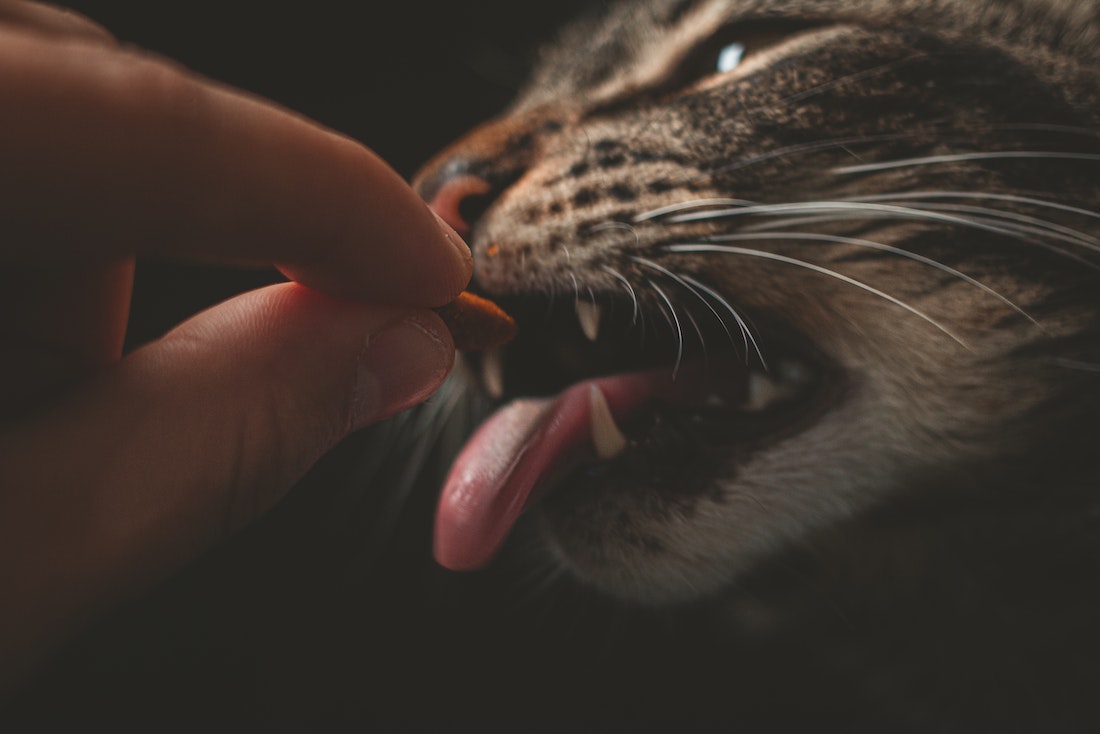Worms are among the common problems your cat can suffer at any time. Deworming is a process of eradicating worms from a cat using vet-prescribed medicines. Besides vaccination, deworming is essential to keep your cat healthy.
If you have recently dewormed your cat, you may have a question: how long after deworming are the worms gone? The worms may take 3 days to 2 weeks to die completely. Often, cats need a second dose in 3 to 4 weeks. It also depends on the type of worms, infection, and used dewormer. Deworming only helps to kill the worms living in a cat’s body. It doesn’t kill all worms forever. Therefore, your cat may need deworming every month.
The post below will cover everything a cat owner wants to know about deworming and what to expect after deworming a cat. In addition, you’ll discover how long worms take to leave your cat’s body. So, read and find the answers.
Types of Worms In Cats
 Your cat can get infected by worms at any stage since worm eggs can pass from animal to animal. If your cat is allowed outdoors, it can easily ingest worms while exploring.
Your cat can get infected by worms at any stage since worm eggs can pass from animal to animal. If your cat is allowed outdoors, it can easily ingest worms while exploring.
Fleas are also a common cause of transmitting these worms. Often, kittens of an infected mother also pick up worms while in the mother’s womb or during breastfeeding.
The three most common types of worms that infect a cat are;
Hookworms
Hookworms are not visible to the naked eye. These intestinal parasites lay eggs, attach themselves to the lining of your cat’s intestine, and feed blood. The eggs then pass through the cat’s stool and infect another animal. Your cat can get sick with hookworms if left untreated.
Tapeworms
The segmented worms primarily transmitted via ingesting an infected flea are called tapeworms. They attach themselves to the wall of the intestine and grow longer. Each tapeworm segment contains eggs that are not considered foreign by the cat’s immune system. That’s why they are hard to get rid of without medicine.
Roundworms
Roundworms are thinner intestinal parasites that don’t attach themselves to the intestinal lining. Instead, they live and swim in a cat’s gut. Also, they migrate through the cat’s body and encourage the production of antibodies. Cats with a fully developed immune system often get rid of roundworms and hookworms without medicines.
Signs If Your Cat Has Worms
The symptoms below can tell you if your cat is worm infected;
- Malabsorption due to intestinal infection
- Increased appetite
- Diarrhea and loose stool
- Scratching in the anal glands
- Bloated abdomen
- Weight loss
How Long Does Cat Dewormer Take to Work?
Depending on the type and number of worms, a cat dewormer may take 24 to 48 hours to work. Some medicines kill adult worms 24 hours after intake, while others may take 2 to 3 days. The complete deworming process may take 3 to 9 days to eliminate worms if your cat is not re-infected during this phase.
The second dose of medicine is often administered two to three weeks after the first dose. It helps to kill the remaining worm eggs and larvae.
Dewormers are anti-parasitic agents that work by paralyzing or starving the worms inside a cat’s body. None of these medicines can kill immature worms. So, it takes time until the larvae mature and become an adult.
You can’t use the same over-the-counter medicine to kill different types of worms since each type of dewormer is worm-specific. Unfortunately, some worms develop resistance to the medicine, and your cat needs a different medicine therapy.
Do Worms Come Out Alive after Deworming a Cat?
You can notice the dying or dead worms after deworming a cat. Even alive worms also come out after deworming. None of the deworming medicine kills your pet’s intestinal worms forever. Worms take time to die completely. You may see no worms in the feces when the medicine is still working.
If you don’t care for your cat after deworming, the worms can return even after a month. However, if you notice alive worms a month after deworming a cat, consult your vet since it may be a sign of re-infection.
Vets recommend deworming kittens every two weeks, from 3 to 8 weeks, and then every month until 6 months.
What Should You Expect After Deworming Your Cat?
 You might be thinking about what to expect after deworming your cat. Most deworming medicines have no side effects.
You might be thinking about what to expect after deworming your cat. Most deworming medicines have no side effects.
However, it depends on your cat’s body and how it reacts to a specific dewormer. You can expect possible side effects within 24 hours after deworming your cat. Read to learn more;
- Vomiting
- Diarrhea
- Increased Salivation
- Reduced appetite
Most symptoms will get better within a few days. Consult your vet if vomiting and diarrhea are getting worse.
How Long Should You Isolate Your Cat After Deworming?
Cats can get re-infected by other infected animals or pets at home. Similarly, your cat can infect other animals nearby. Therefore, you should isolate your cat for 3 to 4 weeks during the treatment. It is better not to allow your cat outdoors while the medicine is still working.
Also, maintain proper hygiene and keep the litter box clean. Ensure to treat your cat for fleas to prevent re-infection.
Can You Feed Your Cat After Deworming?
Yes, you can feed your cat after deworming. However, in case of severe intestinal infection, your cat may suffer abdominal disturbance. You can decrease the quantity of initial meals to check for side effects. If your cat doesn’t show any symptoms, give her regular meals.
Can You Bathe Your Cat After Deworming?
Cats are dewormed for internal or external parasites. Bathing an unvaccinated kitty for the first time after deworming should be strictly avoided since you might be vulnerable to infections.
Bathing a cat after deworming also depends on the type of medicine you use for external deworming. Consult your vet and take his opinion on bathing a cat after deworming.
However, you can bathe an adult cat if its internal deworming is done with the vet’s recommendation.
Final Thoughts
Hopefully, you got the answer to “how long after deworming a cat are the worms gone”. The worms may take 3 to 9 days to go completely. It also depends on the type and number of worms.
Your cat may also need a second dose within 3 to 4 weeks. Re-infection is also common. You should deworm your kittens every 2 weeks, starting from 3 until 8 weeks. Then, deworm your cat every month until 6 months.





